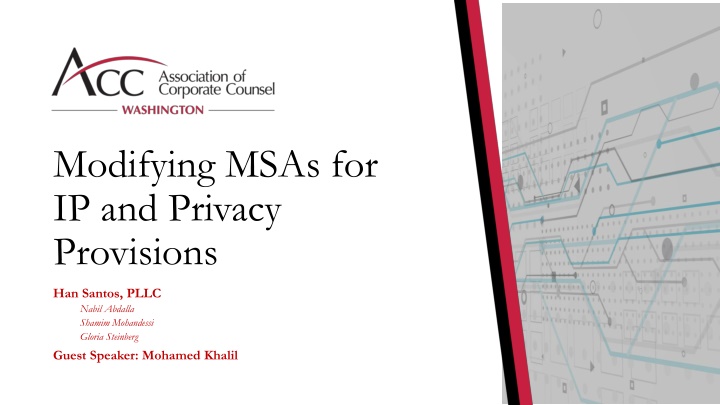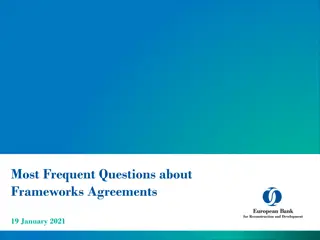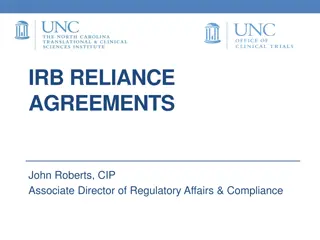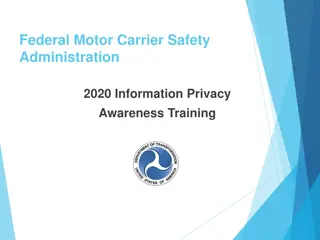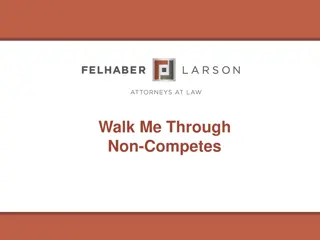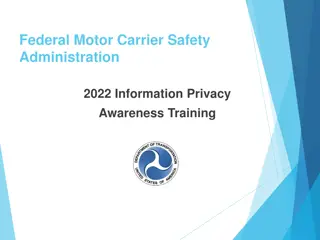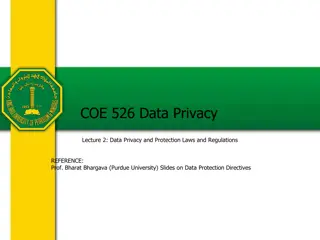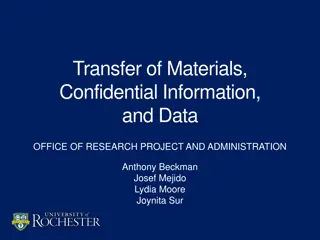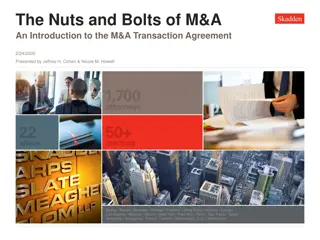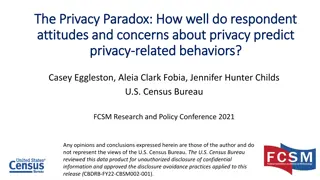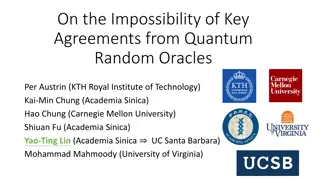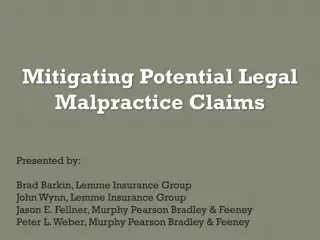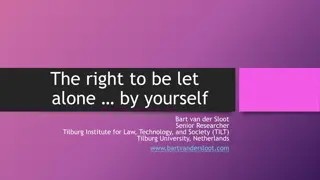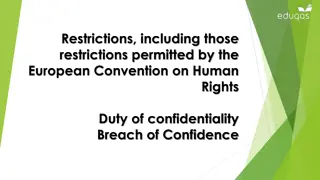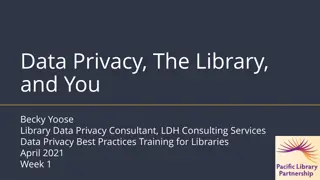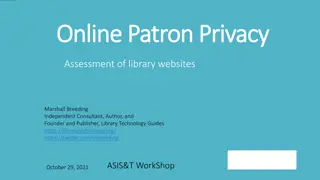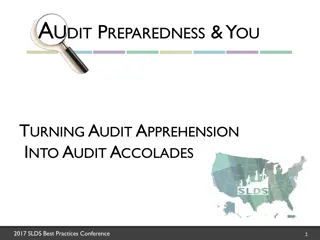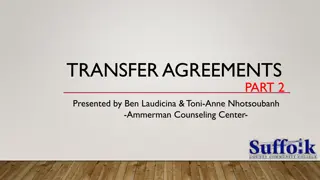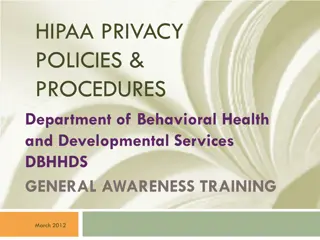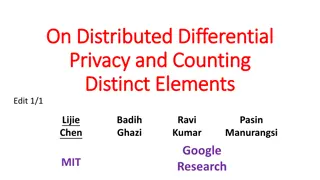Modifying Master Service Agreements for IP and Privacy Provisions
Master Service Agreements (MSAs) play a crucial role in the efficient contracting process of mid to large organizations. They provide a framework for consistent terms and conditions when engaging with vendors, service providers, and licensors. This article explores the utility, common addendums, and best practices for negotiating MSAs with asymmetrical bargaining power, focusing on IP and privacy provisions.
Download Presentation

Please find below an Image/Link to download the presentation.
The content on the website is provided AS IS for your information and personal use only. It may not be sold, licensed, or shared on other websites without obtaining consent from the author.If you encounter any issues during the download, it is possible that the publisher has removed the file from their server.
You are allowed to download the files provided on this website for personal or commercial use, subject to the condition that they are used lawfully. All files are the property of their respective owners.
The content on the website is provided AS IS for your information and personal use only. It may not be sold, licensed, or shared on other websites without obtaining consent from the author.
E N D
Presentation Transcript
Modifying MSAs for IP and Privacy Provisions Han Santos, PLLC Nabil Abdalla Shamim Mohandessi Gloria Steinberg Guest Speaker: Mohamed Khalil
What are Master Service Agreements? Utility of Master Service Agreements in Mid to Large Organizations Common Addendums Case Studies and Examples Best Practices for Negotiating in Situations with Asymmetrical Bargaining Power Agenda
What are Master Service Agreements? MSAs are modular agreements with appendices and addendums for specific classes of services, goods and products.
Utility of Master Service Agreements in Mid to Large Organizations MSAs are generally seen as a way for mid-size and large organizations to contract with vendors, service providers and licensors in an efficient manner without negotiating individual third-party agreements. MSAs create consistency around contracting and allow companies with high volumes of contracts to create common terms, resulting in more manageable contracts.
Common Appendices/Addendums in Master Service Agreements Software Addendum Data Professional Services Addendum Management Addendum Hardware Addendum Cloud Addendum
Background: Company A enters into an MSA with Company B to access Company B s research dataset comprising PII in its cloud- based research environment to carry out research analysis. Terms: Company A: does not grant any software license; maintains ownership of its ML algorithms and models; and owns the resulting data Company B: grants a research license to Company A; will maintain its research environment; maintains the ownership of the research dataset; and will abide by privacy provisions necessary for managing the research environment Case Study #1
Case Study #1 (continued) Intellectual Property Ownership. Software and Documentation. Licensee acknowledges that, as between Licensee and Licensor, Licensor owns all right, title, and interest, including all intellectual property rights, in and to the Software and Documentation, including Updates or improvements thereto. Results. Licensor acknowledges that, as between Licensee and Licensor, Licensee owns all right, title, and interest, to the Results. Professional Services. Company B will provide to Company A the Professional Services, including those identified in an applicable Order. Each Order will identify the relevant Professional Services. If Company B provides Professional Services in the absence of an Order and Company A accepts such Professional Services, this Agreement will apply unless otherwise mutually agreed in writing. Company B will provide all equipment, software, and supplies required to perform the Professional Services. Company B will, at no cost to Company A, promptly and satisfactorily correct any non-conforming or defective Professional Services.
Background: Company A, an EU corporation, operating within the EU and US, offers a mobile device application that alerts its subscribers of location-based real- time safety incidents Company A relies on crowdsourcing among its subscriber base to provide safety alerts. User s sign up, and if an incident it reported, all users that subscribe to receiving alerts and are within proximity to the incident, receive a notice. Company A relies on Company B, a U.S. Corporation, to efficiently process its EU and US subscriber data Important Points: Company A collects EU and US subscriber personal information to facilitate incident notifications Data collected within the EU is transferred to a U.S. company for processing Company A owns, or upon assignment by the creator will own, all right, title, and interest in all Work Product (including all IPR in such Work Product). Case Study#2 Terms: Data transfer agreements Schrem II decision Privacy Shield Standard Contracts Clauses (SSCs) Binding Corporate Rules (BCRs) Data minimization Data anonymization
Case Study #2 (continued) Additional Background: Company A has expanded its services to include a new contact tracing feature, which uses Bluetooth technology to keep a log of a user s close- contact with other subscribers over a 14-day period. If one subscriber indicates on the app that they test positive to an infectious disease, then all other subscribers that came into contact with the subscriber over the 14-day period, receive an alert. Important Point Scope of subscriber consent (i.e. contact tracing feature only)
Sample Privacy/Security Clause Access. Company B has the right to access, review, and retain Company B Data held by Company A, including all computer or other files containing Company B Data, and Company A will ensure Company B has prompt and unrestricted access to such Company B Data. Company A will provide Company B with all passwords, codes, comments, keys, and documentation necessary for such access and to use the Services. Restrictions. Company A may collect, use, store and retain only the Company B Data expressly authorized under the applicable Order solely as necessary for Company A to perform the Professional Services in accordance with this Agreement and such Order. Company A (including its Affiliates and their Personnel) will not: (i) otherwise collect, monitor, use or retain any Company B Data; (ii) collect Company B Data by means other than those authorized in this Agreement or the applicable Order or (iii) monitor, collect, use or store any personally identifiable information other than on behalf of, and as directed by, Company B. Security. In providing the Services, Company A will comply with Company B's Security Policy. Company A will immediately notify Company B of any security breach relating to the Services that may involve Company B's Confidential Information or Company B Data.
Background: Company A enters into an MSA with Company B to load Company A's software on Company C s GPU so that Company B can develop its products using Company C s GPU preloaded with Company A s software that can collect certain data from IoT devices operated by Company B's customers. Terms: Case Study #3 Company A: grants a limited license to Company B; grants rights to create derivative work to Company B; assigns all rights to the work product to Company B; and provides maintenance and support to Company B Company B: maintains ownership of the derivative work; and provides grant back to Company A
Case Study #3 (continued) License. Company A hereby grants Company B, its Affiliates, and their contractors solely for the Permitted Purposes to Company B and its Affiliates, a non-exclusive, limited, non-transferable, non- sublicensable, irrevocable right and license to install, test, use, reproduce, distribute, modify or create derivative works or improvements of the Software. Grant-back. Company B hereby grants to Company A, its Affiliates, and their contractors a worldwide, royalty-free, a fully paid-up, irrevocable, and non-exclusive right and license to use, sell, and offer for sale the derivative works created by Company B ("Grant-Back License"). Work Product. Company B owns, or upon assignment by Company A, will own, all right, title, and interest in all Work Product and intellectual property rights thereto. To the extent that any Deliverables does not qualify as Work Product, Company A irrevocably transfers its ownership, right, and title to the Deliverables under this Agreement. Support and Maintenance. Company A will provide to Company B the Professional Services, including support and maintenance services as identified in Exhibit A.
Best Practices for Negotiating in Situations with Asymmetrical Bargaining Power Consider interplay among different provisions Grant Back Acceptance Criteria Liquidated Damages Derivative Works Payment Terms Limitations Fees Termination License
Best Practices for Negotiating in Situations with Asymmetrical Bargaining Power More leeway with work orders and other addendum Look at the big picture Ultimate objective of the parties and business interests What is the bottom line
Nabil Abdalla Senior Associate Nabil@hansantos.com Question & Answer Shamim Mohandessi Senior Associate Shamim@hansantos.com Gloria Steinberg Senior Associate Gloria@hansantos.com Mohamed Khalil Senior Corporate Counsel Mohamed.khalil@medstreaming.com
